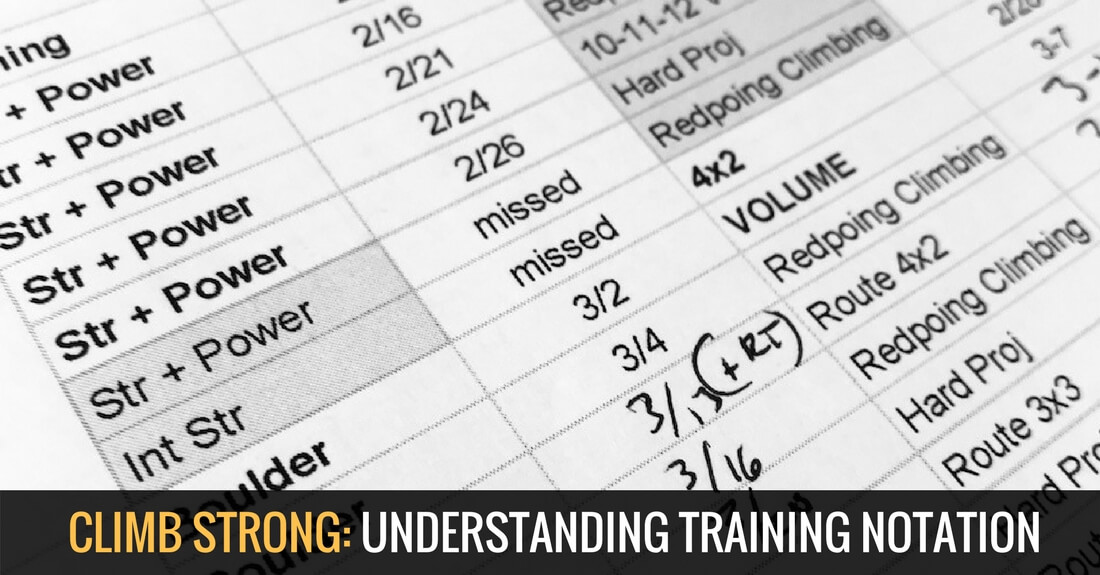We are getting better and better at training for climbing. For climbers looking to improve through systematic training, there are lots of resources available and more and more coaches writing quality training programs. However, if you are going to benefit from a training program you definitely need to be able to read it. Training, just like climbing movement, has its own jargon. Understanding how to read training notation is important if you are going to enter the world of more formal climbing training.
To help, here’s an article by Steve Bechtel of Climb Strong where he defines common training terms and outlines training notation.
“This notation is important. It is something that is easy to understand once you have the hang of it, and it opens up a valuable communication channel for athletes and coaches once both are on the same page. What follows are the most common terms, phrases, and notations you’ll see in our training plans and articles. These terms are used consistently in our work and although you may see some variation from other coaches or cultures, with a good grasp of the basics you should be able to figure things out soon enough.” – Steve Bechtel
Understanding Training Notation
Now, as Bechtel says in the above quote, the notation and terms he’s defining are the ones he uses as a coach. They are not standardized across climbing training. However, they are fairly common. Learning these terms and notation will prepare you to read just about any training program.
Click through below for the full article. Reading about sets, reps, sessions, and rounds may not be very exciting. However, learning these terms and notation is learning the basics. Doing so will give you the tools to understand better evaluate whatever training programs you’re looking at.
Full Article: Climb Strong – Understanding Training Notation
(photo courtesy of climbstrong.com)
Other Articles You Might Like:
- Steve Bechtel – Back to Basics
- Steve Bechtel: Power vs Strength
- TBP 080 :: Steve Bechtel on How to Create Your Own Training Plan
- Logical Progression by Steve Bechtel






Leave A Comment